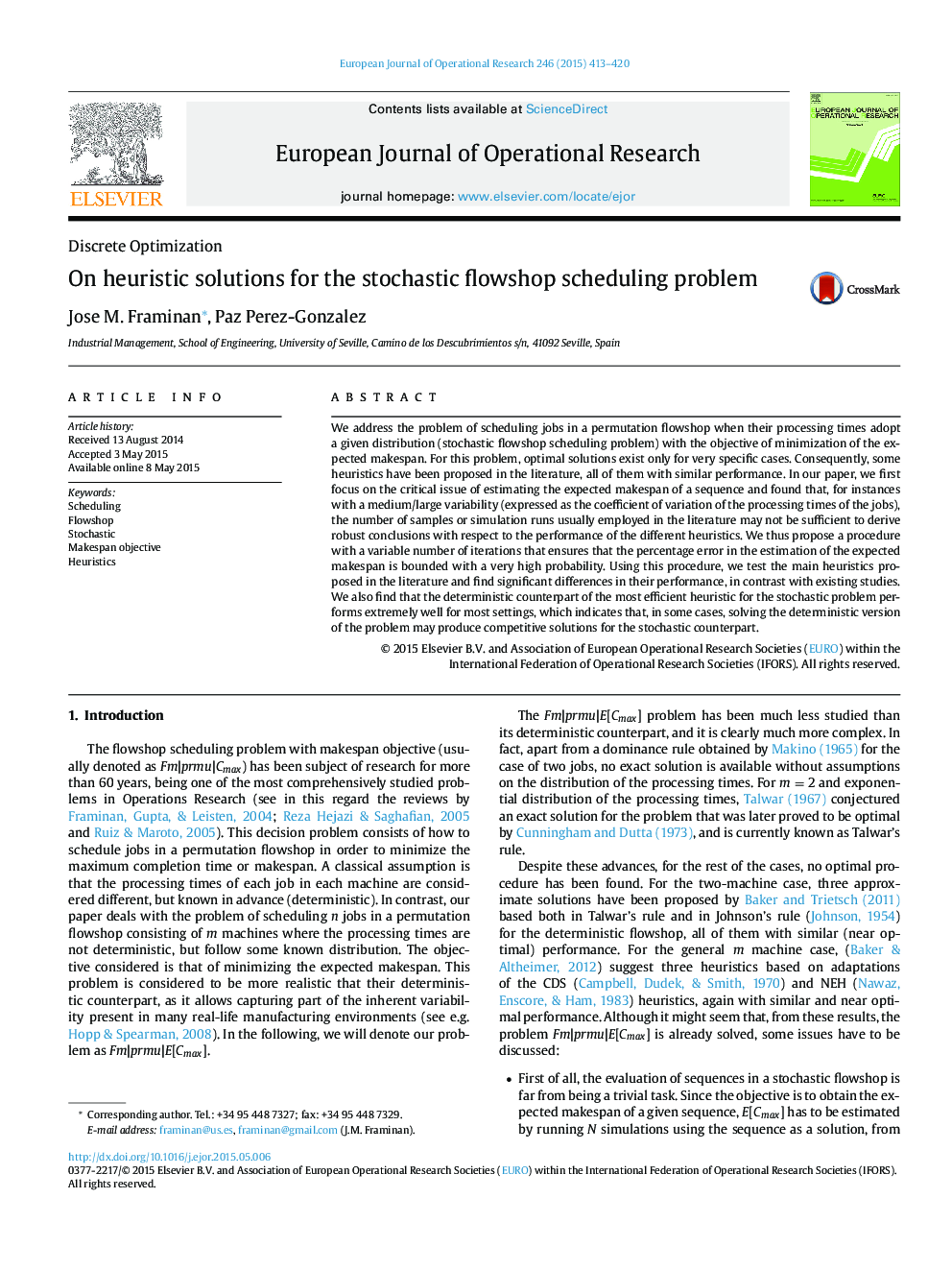| Article ID | Journal | Published Year | Pages | File Type |
|---|---|---|---|---|
| 476548 | European Journal of Operational Research | 2015 | 8 Pages |
•We propose a method to estimate expected makespan in a stochastic flowshop.•We conduct experiments that show that existing results may not be fully justified.•We compare existing heuristics using the proposed method for makespan estimation.
We address the problem of scheduling jobs in a permutation flowshop when their processing times adopt a given distribution (stochastic flowshop scheduling problem) with the objective of minimization of the expected makespan. For this problem, optimal solutions exist only for very specific cases. Consequently, some heuristics have been proposed in the literature, all of them with similar performance. In our paper, we first focus on the critical issue of estimating the expected makespan of a sequence and found that, for instances with a medium/large variability (expressed as the coefficient of variation of the processing times of the jobs), the number of samples or simulation runs usually employed in the literature may not be sufficient to derive robust conclusions with respect to the performance of the different heuristics. We thus propose a procedure with a variable number of iterations that ensures that the percentage error in the estimation of the expected makespan is bounded with a very high probability. Using this procedure, we test the main heuristics proposed in the literature and find significant differences in their performance, in contrast with existing studies. We also find that the deterministic counterpart of the most efficient heuristic for the stochastic problem performs extremely well for most settings, which indicates that, in some cases, solving the deterministic version of the problem may produce competitive solutions for the stochastic counterpart.
